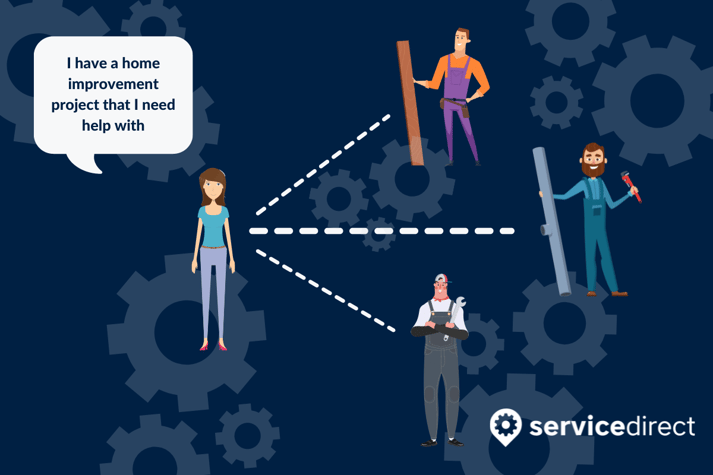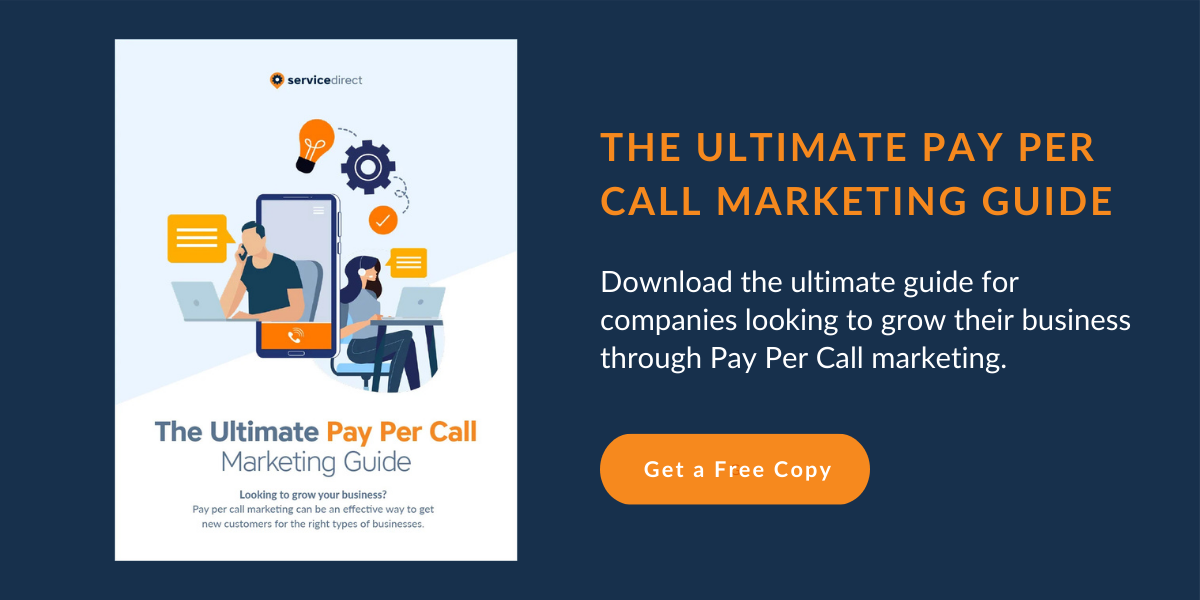Exclusive vs. Shared Leads for Contractors
In today’s competitive home services landscape, every call counts. Contractors are investing more than ever in digital marketing, and with so many lead generation options available, understanding the difference between exclusive and shared calls has never been more important.
Over the past few years, the pay-per-call industry has evolved dramatically. With AI-powered tools that verify intent, track call outcomes, and deliver real-time insights, contractors now have greater control over the quality of the calls they purchase.
But with that control comes an important decision: Should you focus on exclusive calls that are yours alone, or shared leads that multiple businesses compete for?
In this article, we’ll break down what each model means, how new technology and market trends have shifted their value, and what you can do to make sure your investment in leads delivers the best possible return.
Remember: when it comes to growing your business through phone leads, there’s no one-size-fits-all approach.
Every contractor’s goals, service area, and capacity are different, which means the right lead type depends on how you operate. Let’s start by looking at exclusive leads: what they are, how they work, and why many contractors see them as the most reliable way to grow their customer base.
What is an "Exclusive Lead"?
Exclusive leads are exactly what they sound like—calls that are sent only to your business.
When a potential customer is looking for a contractor in your area, that call is yours and yours alone. You don’t have to compete with other businesses for their attention, meaning you can focus entirely on providing excellent service and closing the job.
In 2025, exclusive leads have become even more valuable thanks to major improvements in AI-driven lead verification and call intelligence technology.
Tools like our AI-powered Quality Check and Call Recap feature now analyze calls in real-time to ensure you're getting the most out of our services without unnecessary spending. This helps avoid wasting resources on managing irrelevant or “shopping-around” calls and gives contractors more confidence that every lead has real intent.
For many home service businesses, that exclusivity translates into a higher Service Needed Rate, better Booked Appointment Rates, and ultimately a stronger return on investment. With key insights at your fingertips, contractors can track precisely how well your leads are performing and make smarter decisions about where to invest your marketing dollars.
What is a "Shared Lead"?
Shared leads are calls that are sold to multiple contractors at once. That means when a homeowner submits a request for service—say, a plumbing repair or an HVAC tune-up—several businesses receive the same contact information.
The result is a race to reach the customer first, often leading to a mix of opportunities and frustrations for contractors.
While shared leads can be an affordable way to fill your pipeline, the quality and intent can vary widely.
In 2025, many providers have started using AI-based intent scoring and real-time verification tools to improve shared lead quality. However, since these calls are distributed to multiple companies, there’s always the risk that a competitor beats you to the call—or that the customer gets overwhelmed by too many outreach attempts and drops off entirely.

For newer or smaller businesses looking to build visibility, shared leads can serve as a low-cost way to test demand in your area.
But for contractors focused on maximizing efficiency and conversion rates, exclusive leads remain the gold standard and a long-term solution for lead generation, especially now that AI tools make it easier to connect with a real customer who needs your help.
Exclusive vs Shared: Pros and Cons
Choosing between exclusive and shared leads often comes down to your business goals, budget, and capacity. Both models have their place, but the value of each has shifted in recent years as technology and consumer expectations have evolved.
Exclusive Leads: The High-Intent, High-ROI Option
Exclusive leads give you complete ownership of the customer connection. You’re the only contractor receiving that call, which means no bidding wars or wasted time chasing unresponsive calls. In 2025, the advantages have only grown stronger:
- AI-verified quality: Tools like Quality Check powered by AI help ensure calls are genuine and relevant before you pay for it.
- Higher conversion rates: Contractors typically see stronger Booked Appointment Rates because the customer is reaching out directly to them.
- Better insights: With access to data dashboards, you can monitor real-time lead health and ROI.
- Less competition: You control the customer experience from the start, giving you a higher chance of closing the job.
That said, exclusive leads usually cost more per lead than shared ones—but with the right tracking and follow-up strategy, the ROI is often much higher.
Shared Leads: The Volume-Driven Approach
Shared leads are typically cheaper and can help newer contractors or smaller teams fill their pipeline quickly. You might receive more leads overall, but since you’re competing with other businesses for the same customer, the close rate tends to be lower.
- Lower upfront cost: Ideal for contractors testing new service areas or marketing channels.
- Faster feedback: You can quickly gauge local demand and identify which types of jobs convert best.
- More competition: Multiple contractors may reach out at once, reducing your chances of connecting.
- Variable quality: Even with AI filtering, shared leads can still include customers who are only price shopping or undecided.
Conclusion: Choosing the Right Lead Model for you
At the end of the day, there’s no single “best” lead type for every contractor. What matters most is aligning your lead strategy with your business goals, team size, and capacity.
Shared leads can be a great way to get started, test demand, and build your reputation in new areas. But if you’re focused on efficiency, high intent, and better ROI, exclusive pay-per-call leads continue to offer the strongest path to growth.
Thanks to advancements in AI-powered call verification, lead quality scoring, and real-time campaign insights, contractors now have more control than ever over the calls they buy and how they perform. At Service Direct, we strive to make it easy to connect with real customers who actually need your services—no competing calls, no wasted spend, just more booked jobs.
When making your decision, it's crucial that you carefully consider your company’s offerings, strengths, and weaknesses. Be sure to consider the real return on investment potential. You may find that spending more on exclusive leads will, in all likelihood, lead to higher profit margins.
related content
- Introducing AI-Powered Quality Check
- How to Choose the Best Lead Generation Company
- Introducing Call Recap
Editor's note: This blog was originally published in January 2022 and has been updated to reflect current market trends and data.

.png)



